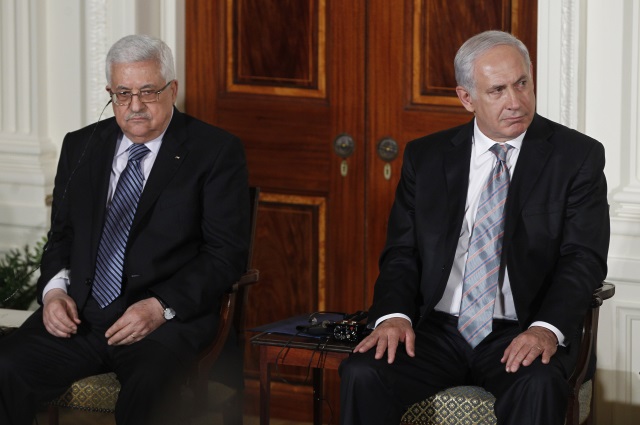Ramallah presents its list of conditions for supporting US-brokered peace deal between Israel and Saudi Arabia.
By Batya Jerenberg, World Israel News
The Palestinian Authority (PA) presented Wednesday a list of demands for Israel, Saudi Arabia and the United States to fulfill for it to accede to a deal that would see Riyadh establish diplomatic relations with Jerusalem while receiving a NATO-like defense pact from Washington and a civilian nuclear program.
In a meeting with Saudi National Security Adviser Musaed al-Aiban, top PA officials, including President Mahmoud Abbas’ handpicked heir-apparent, Hussein al-Sheikh, discussed their desires, which hewed closely to those leaked over a week ago from a meeting they held with US Assistant Secretary of State Barbara Leaf in Amman.
According to a BBC report citing a “senior Palestinian official familiar with the discussions,” these included concessions from all three countries:
- The PA wants the Saudis to renew their annual $200 million in financial support, which had been greatly reduced in 2016 and then ceased in 2020 due to Riyadh’s displeasure over Palestinian corruption and non-governability over parts of its territory.
- Ramallah is also demanding the U.S. force Israel back to the negotiating table, starting off from the point talks broke down in 2014 in Annapolis, Maryland, when, for example, Israel was reportedly willing to give up sovereignty in the Jordan Valley as long as the IDF could have a presence there for an unidentified period of time in order to ensure Israel’s security.
- Another demand made of the Americans was to reopen their consulate in Jerusalem that served as Washington’s informal representation to the PA, which president Trump had closed.
According to a report last week in the Times of Israel, the reported laundry list for Washington was even longer.
It included Washington’s supporting recognition of a Palestinian state at the UN, and canceling legislation such as the so-called “Pay for Slay” law that proscribes funding the PA directly until it stops paying generous salaries to Palestinians imprisoned in Israel for having committed terrorist attacks.
While the Saudis have already offered to restore financial aid, and the U.S. would probably not be averse to hosting peace negotiations once more, the embassy reopening would legally depend on Israel’s permission, which even its previous unity government had refused to give.
But the thorniest demands are those being made of Israel. The Palestinians are insisting that Israel “completely” stop all settlement growth in Judea and Samara, and also transfer control over parts of Area C to the PA, thereby turning them into Area B and effectively enlarging its territory.
Meanwhile, although several top American officials have been flying into Riyadh for discussions regarding the tripartite agreement, the talks are far from reaching completion on any side.
As White House National Security Adviser Jake Sullivan said Tuesday, “We don’t expect any imminent announcements or breakthroughs in the period ahead.”


